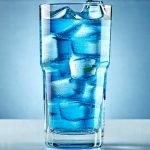Acid reflux, also known as heartburn, is a common digestive issue affecting millions of people worldwide. It occurs when stomach acid flows back up into the esophagus, causing a burning sensation in the chest. While many factors can contribute to this uncomfortable condition – dietary choices, lifestyle habits, and underlying medical conditions among them – carbonated beverages frequently appear on lists of potential triggers. Understanding how these bubbly drinks might impact reflux is key for those seeking ways to manage their symptoms and improve digestive health.
The prevalence of carbonated beverages in modern diets makes this a particularly relevant topic. From sodas and sparkling water to fizzy juices and even some energy drinks, these options are readily available and often consumed daily by many individuals. This widespread consumption necessitates a closer look at the relationship between carbonation and acid reflux, exploring potential mechanisms and offering insights for those looking to minimize discomfort.
Understanding Acid Reflux
Acid reflux isn’t a disease itself but rather a symptom of an underlying issue, most commonly gastroesophageal reflux disease (GERD). The lower esophageal sphincter (LES), a muscular ring at the bottom of the esophagus, normally prevents stomach acid from backing up. When this muscle weakens or relaxes inappropriately, acid can flow upwards causing irritation and discomfort. Various factors can contribute to LES dysfunction, making some individuals more prone to experiencing acid reflux than others.
The Role of Carbonation
Carbonated beverages introduce gas into the digestive system. This increased volume within the stomach can put pressure on the lower esophageal sphincter (LES), potentially leading to relaxation or weakening and thus increasing the likelihood of acid flowing back up into the esophagus. While not everyone experiences this effect, those already prone to reflux may find their symptoms exacerbated by carbonated drinks.
How Carbonation Impacts Stomach Pressure
The bubbles in carbonated beverages expand the stomach, directly increasing intra-abdominal pressure. This physical distension can overwhelm the LES’s ability to remain tightly closed. Even seemingly small amounts of carbonation can contribute to this effect, particularly if consumed quickly or in large quantities. The degree of impact varies based on individual sensitivity and existing reflux tendencies.
Beyond Carbonation: Other Beverage Components
It’s crucial to note that the effects aren’t solely due to carbonation itself. Many carbonated beverages contain caffeine, citric acid, or sugar – all potential triggers for acid reflux in susceptible individuals. Caffeine can relax the LES, while citric acid increases stomach acidity, and sugary drinks can contribute to weight gain which is also linked to increased reflux risk. Therefore, the overall beverage composition plays a significant role.
Identifying Personal Triggers & Mitigation Strategies
Determining whether carbonated beverages specifically trigger your acid reflux requires careful self-monitoring. Keeping a food diary to track consumption alongside symptom occurrences can help pinpoint individual sensitivities. Simple strategies like reducing portion sizes of carbonated drinks, avoiding them before bedtime, or opting for flat alternatives (still water, herbal teas) can often lessen discomfort.
Ultimately, understanding the potential mechanisms by which carbonated beverages may influence acid reflux is a valuable step towards managing this common digestive issue. It’s about being mindful of individual sensitivities and making informed choices to support overall digestive well-being. While many enjoy these drinks without incident, recognizing their possible impact can empower individuals to proactively minimize discomfort and improve quality of life.


















